Breast Augmentation in Bali
Search and Compare the Best Clinics and Doctors at the Lowest Prices for Breast Augmentation in Bali
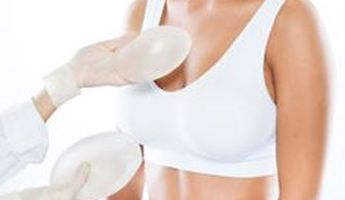
Find the best clinics for Breast Augmentation in Bali
With Medijump you can browse 4 facilities offering Breast Augmentation procedures in Bali. The cheapest price available is $3,238 in Bali. And for the cheapest price globally, prices start from $208 in Hungary.
Breast Augmentation in Indonesia
Price: $ 3,238
Breast Augmentation in Bali
Price: $ 3,238
Hungary offers the best prices Worldwide
Price: $ 208
From 108 verified reviews
Cody Macquarie, 22 September 2020
From admitted to discharge was great. Front office staff, nurses, doctors all had wonderful and caring attitudes. Facility is beautiful and clean, I had nothing to complaint about
From 108 verified reviews
Karl Allen, 06 September 2020
Got my teeth cleaned and some xrays reasonable priced efficient in and out make an appointment prior
RSU BaliMéd Negara, located in Jembrana, Bali, Indonesia offers patients Breast Augmentation procedures among its total of 354 available procedures, across 12 different specialties. Currently, there's no pricing information for Breast Augmentation procedures at RSU BaliMéd Negara, as all prices are available on request only, whilst the national average price is approximately $3,238. There is currently a lack of information available on the specialists practicing at the Hospital, and they are not accredited by any recognized accreditations institutes
Balimed Denpasar, located in Denpasar, Bali, Indonesia offers patients Breast Augmentation procedures among its total of 354 available procedures, across 12 different specialties. Currently, there's no pricing information for Breast Augmentation procedures at Balimed Denpasar, as all prices are available on request only, whilst the national average price is approximately $3,238. There is currently a lack of information available on the specialists practicing at the Hospital, and they are not accredited by any recognized accreditations institutes
Compare Before & After Photos of _procedure_photos.phpBreast Augmentation


Full-side view
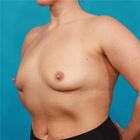

Half-side view


Front view
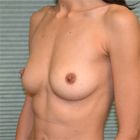

Half-side view
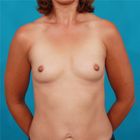

Front view
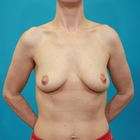

Front view
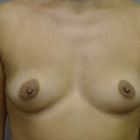
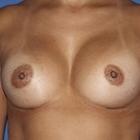
Front view
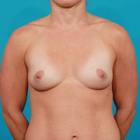

Front view
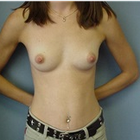
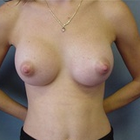
Front view
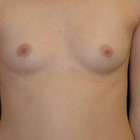
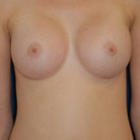
Front view
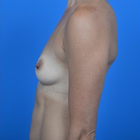
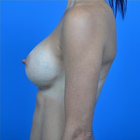
Full-side view
WHY US?
At Medijump, we're making medical easy. You can search, compare, discuss, and book your medical all in one place. We open the door to the best medical providers worldwide, saving you time and energy along the way, and it's all for FREE, no hidden fees, and no price markups guaranteed. So what are you waiting for?

Free

Best Price

Widest Selection

Risk-Free
What you need to know about Breast Augmentation in Bali

Breast augmentation, also known as a Boob Job or Breast Enlargement, is a surgical procedure aimed at increasing breast size, enhancing shape, or improving symmetry. In Bali, this procedure is carried out by board-certified plastic surgeons in accredited medical facilities, ensuring both safety and quality.
What is the cost of Breast Augmentation in Bali?
Prices in Bali are competitive, often offering savings without compromising on quality, especially when compared to costs in the US or Europe. However, factors such as surgeon’s fees, facility costs, and the type of implants affect the total cost.
What does a Breast Augmentation Procedure Involve?
The surgery involves placing breast implants under the breast tissue or chest muscles. Choices between saline or silicone implants can be made based on the desired feel and appearance. This is something your surgeon will discuss with you prior to even travelling.
How Long Should I Stay in Bali for a Breast Augmentation Procedure?
The length of stay in Bali for a Breast Augmentation is subject to various factors, such as your overall health, the specific nature of the procedure, and your individual recovery rate. Generally, Breast Augmentation surgery is an outpatient process, meaning you may be able to return home on the same day. However, a stay of up to two days might be necessary if your procedure is more intricate.
Although the hospital stay is relatively brief, it is advisable to remain in Bali for at least one-week post-procedure. This timeframe allows for initial recovery and a follow-up appointment with the surgeon. Moreover, in the event of any complications, prompt medical assistance will be accessible. Thorough knowledge of the recovery process and its duration is crucial for proper preparation and managing stress during treatment.
What's the Recovery Time for Breast Augmentation Procedures in Bali?
Post-surgery, a recovery period of one to two weeks is generally required, with follow-up visits to the surgeon. It's crucial to follow all post-op instructions for optimal healing.
Experiencing swelling and discomfort following the operation is normal, both of which should gradually alleviate with time. You will be required to wear a compression garment, take prescribed medications, and maintain a healthy lifestyle for an effective recovery.
What sort of Aftercare is Required for Breast Augmentation Procedures in Bali?
Post-operative care is critical for the success of a Breast Augmentation. The initial recovery phase usually includes prescribed medications to alleviate pain and avert infection. Individuals can normally resume everyday activities within a few weeks, depending on their healing pace and bodily responses. However, it is advisable to refrain from vigorous activities for a minimum of six weeks post-procedure.
What's the Success Rate of Breast Augmentation Procedures in Bali?
In Bali, Breast Augmentation boasts a relatively high success rate, which contributes to its immense popularity among individuals seeking improvements in their physical appearance. Numerous patients have reported satisfaction and enhanced confidence after undergoing the procedure, making it a widely favoured cosmetic surgery.
Are there Alternatives to Breast Augmentation Procedures in Bali?
In Bali, there are several alternatives to the Breast Augmentation. If you're considering breast augmentation strictly for cosmetic reasons and prefer non-surgical options, various suitable methods are available. Alternatives include fat grafting, hormonal therapy, and natural remedies. Fat grafting, also known as fat transfer, involves removing fat from different body parts and injecting it into your breasts. This approach is regarded as safer because it employs the body's tissue, minimizing complications.
What Should You Expect Before and After the Procedure?
Prior to the procedure, your surgeon will discuss your expectations and the anticipated outcomes of your Breast Augmentation. The preoperative consultation comprises an in-depth conversation about your medical history, a physical examination, and an outline of the procedure and postoperative care. Open and candid communication with your healthcare provider is crucial at this stage to ensure the treatment matches your objectives.
Post-procedure, initial swelling and discomfort are normal and can be managed with prescribed medication. It's vital to adhere to your surgeon's post-operative guidelines, which include caring for surgical incisions, taking prescribed medications, and attending follow-up appointments. As swelling subsides and incision lines fade gradually, your enhanced breast profile will become apparent.
Keep in mind that the decision to pursue a Breast Augmentation is deeply personal and should not be made hastily. Allocate time to consider the advantages and drawbacks, and ensure you are well-informed.
What are the Risks and Complications of Breast Augmentation Procedures in Bali?
As is the case with any surgical intervention, Breast Augmentation comes with its own set of risks and potential complications that need to be considered. These may include infections, bleeding, alterations in nipple or breast sensations, implant leakage or rupture, development of scar tissue, and unsatisfactory outcomes that could necessitate further surgeries.
Some individuals may also encounter complications tied to anesthesia, such as respiratory problems and reactions to medication. The psychological ramifications should not be overlooked, considering surgical procedures can impact mental well-being. An extensive conversation with your healthcare provider about these potential risks remains a key component in making an informed choice.
How to Prepare for Breast Augmentation in Bali?
Thorough preparation plays a significant role in the success of your Breast Augmentation. Before the surgery, you must have detailed conversations with your surgeon about your medical background, allergies, current medications, and lifestyle habits such as smoking or alcohol consumption. You may need to cease certain medications and habits, including smoking, weeks before the procedure, as they can influence the healing process.
Practical preparations like organizing for someone to be with you on the day of the surgery, scheduling sufficient time off work for recovery, and establishing a comfortable space at home for recuperation can contribute to a smoother post-operative phase. Your surgeon's team will also advise you on pre-operative fasting and hygiene guidelines.
What are some Common Misconceptions about Breast Augmentation?
Despite its widespread popularity, numerous misconceptions surround the Breast Augmentation. One such misconception asserts that breast implants are permanent. In actuality, breast implants may require replacement after 10-15 years, with the specific timeframe depending on individual health and lifestyle factors. Another false assumption is that breast augmentation solely serves vanity purposes. In reality, many patients undergo this procedure following mastectomy or as part of gender-affirming surgery.
A further common myth suggests that breast augmentation hinders breastfeeding. While a few instances might affect breastfeeding, the majority of individuals with breast implants can successfully breastfeed.
Whilst the information presented here has been accurately sourced and verified by a medical professional for its accuracy, it is still advised to consult with your doctor before pursuing a medical treatment at one of the listed medical providers
No Time?
Tell us what you're looking for and we'll reachout to the top clinics all at once
Enquire Now

Popular Procedures in Bali
Prices Start From $834

Prices Start From $500

Prices Start From $93

Prices Start From $85

Prices Start From $477

Prices Start From $931

Recommended Medical Centers in Bali for Breast Augmentation

- Interpreter services
- Translation service
- Religious facilities
- Medical records transfer
- Medical travel insurance
- Health insurance coordination
- TV in the room
- Safe in the room
- Phone in the room
- Private rooms for patients available

- Interpreter services
- Translation service
- Religious facilities
- Medical records transfer
- Medical travel insurance
- Health insurance coordination
- TV in the room
- Safe in the room
- Phone in the room
- Private rooms for patients available

- Interpreter services
- Translation service
- Religious facilities
- Medical records transfer
- Medical travel insurance
- Health insurance coordination
- TV in the room
- Safe in the room
- Phone in the room
- Private rooms for patients available

- Interpreter services
- Translation service
- Religious facilities
- Medical records transfer
- Medical travel insurance
- Health insurance coordination
- TV in the room
- Safe in the room
- Phone in the room
- Private rooms for patients available

- Interpreter services
- Translation service
- Religious facilities
- Medical records transfer
- Medical travel insurance
- Health insurance coordination
- TV in the room
- Safe in the room
- Phone in the room
- Private rooms for patients available

- Interpreter services
- Translation service
- Religious facilities
- Medical records transfer
- Medical travel insurance
- Health insurance coordination
- TV in the room
- Safe in the room
- Phone in the room
- Private rooms for patients available

- Interpreter services
- Translation service
- Religious facilities
- Medical records transfer
- Medical travel insurance
- Health insurance coordination
- TV in the room
- Safe in the room
- Phone in the room
- Private rooms for patients available

- Interpreter services
- Translation service
- Religious facilities
- Medical records transfer
- Medical travel insurance
- Health insurance coordination
- TV in the room
- Safe in the room
- Phone in the room
- Private rooms for patients available

- Interpreter services
- Translation service
- Religious facilities
- Medical records transfer
- Medical travel insurance
- Health insurance coordination
- TV in the room
- Safe in the room
- Phone in the room
- Private rooms for patients available

- Interpreter services
- Translation service
- Religious facilities
- Medical records transfer
- Medical travel insurance
- Health insurance coordination
- TV in the room
- Safe in the room
- Phone in the room
- Private rooms for patients available
Breast Augmentation in and around Bali
About Bali
Bali is an Indonesian province located on the west side of the Lesser Sunda Islands. It is the country’s main tourist hotspot that attracts millions of tourists each year. The beaches are tranquil and perfect for any sun-seeker, the marine life is one of the most diverse in the world, the culture is beautiful, and the mountains are covered in lush jungles and great for hiking. In addition to the natural and cultural beauty, there are myriad of things that tourists can do here, from yoga, partying, surfing, to horseback riding.
Bali is not only full of fascinating beaches, but this tropical paradise also boasts many high-quality medical facilities offering various types of treatments. The island continues to upgrade its infrastructure and develop its medical centers to compete with neighboring countries, such as Singapore and Thailand. Medical tourists are able to avail of a wide range of treatments including cosmetic surgery and at affordable rates. The medical centers have modern equipment, and there is little to no waiting time for almost every procedure. Additionally, the island is also equipped with exclusive yoga centers, Bali-traditional spas, and Jamu traditional medicinal herbs.
Popular Areas in Bali
- Seminyak is known to be the most luxurious area in Bali. Tourists will find many fashionable boutiques, upscale restaurants, and exclusive clubs. In the afternoon, tourists can soak up the sun while sipping a cocktail in one of its famous beach clubs or take a beginner surfing lesson at one of its beaches. The main beach is Petitenget Beach where tourists can enjoy magical sunsets or swim in its warm waters. The area is also home to Bali’s best cafés, which makes café hopping a must-do event.
- The Nusa Islands is located around 20 kilometers offshore from the main island and can only be accessed by boat. It consists of three islands: Lembongan, Ceningan, and Penida. The most popular and the closest to the main island of Bali is Nusa Lembongan. The biggest is Nusa Penida and the smallest is Nusa Ceningan. The three islands offer tranquil and almost-empty beaches, which is perfect for anyone who wishes to stay away from crowds.
- Ubud is the island’s jungle paradise that still retains numerous aspects of traditional Balinese. It is the place for tourists who wants to immerse in Bali’s culture and nature. There are various beautiful temples, dance shows, and historical sites within the area. The most popular place is Ubud Monkey Forest or the Sacred Monkey Forest Sanctuary, which is a sacred temple, an evocative jungle, and natural habitat of monkeys.
- Sanur is Bali’s earliest beach resort and is located on the eastern side of the island; it contains some of the island’s first hotels. The area is known to be family-friendly as well as one of the best places to enjoy Bali’s magnificent sunrises. Sanur is very quiet which makes it the perfect place for relaxation. Wander around for a day and you will find many major cultural landmarks hidden in plain sight.
- Canggu is famous for its green rice fields, dark sandy beaches, and healthy food. This up-and-coming area is also filled with cool cafes and vegan restaurants. It is also a prime spot for surfing since the beaches have massive shore breaks. One of the most famous places in the area is the Pura Tanah Lot Temple as it is a famous seaside religious site located on top of a rock formation, which offers a picturesque view.
Weather and Climate in Bali
Bali enjoys warm and comfortable weather all year round. The tropical island experiences two seasons: dry and wet. The dry season starts in April and ends in October. The average temperatures during this season are between 23 °C to 31 °C. June to August are the driest months, making them the best months to visit the island. The wet season is from November to March. Expect to find many rainy days during the wet season. The temperatures are generally similar to the dry season, but the humidity will increase significantly.
Getting Around in Bali
I Gusti Ngurah Rai International Airport is the main gateway to Bali and it is located 13 kilometers south of Denpasar and is the second busiest airport in Indonesia. The airport has international connections with major cities around the globe, including Bangkok, Melbourne, Moscow, and Guangzhou. It also serves domestic flights to many regions within Indonesia. The most affordable way to travel to and from Bali is by flying with budget airlines, such as AirAsia, Citilink, and Lion Air.
There are several ways to get around Bali. Most of the transportation options are very affordable. Hiring a motorcycle is the fastest option, but if you do not like the idea of driving by yourself, you can try the motorcycle taxis known as ‘ojek,’ which can be hailed directly from the streets or by using apps such as Grab and Go-Jek (similar to Uber). The apps also provide private cars and food delivery. Taxis are widely available and run on a meter. The most reliable taxi companies are Blue Bird and Express.
Tourist Visas in Bali
Indonesia is known to be a visa-friendly country since most developed countries can enter without a visa. The country allows a citizen of 170 countries to enter and stay for up to 30 days. Citizens of Japan, the United Kingdom, the United States, and 65 other countries can apply for a visa on arrival. It is best to check at the nearest Indonesia Embassy or Consulate to find out if you need a visa or not. All visitors are required to have a visa valid for at least 6 months.
Additional Information
- Local Currency: Indonesian Rupiah (Rp) is the official currency, and $1 converts to Rp14.000.
- Money & Payments: Tourists will find ATMs that accept international cards almost everywhere (mostly Visa and MasterCard). Credit and debit cards are accepted in many shops, restaurants, and hotels. Tipping is not expected but will be greatly appreciated.
- Local Language: The official language is Bahasa Indonesia, and most people will also speak Balinese. English is widely spoken, especially in tourist areas.
- Local Culture and Religion: Most people in Bali follows Hinduism, and almost every aspect on the island is submerged with the Hindu faith. There is also a large group of Muslims as well as small group groups of Christian and Buddhists.
- Public Holidays: Bali celebrates major religious holidays, including Nyepi (Silent Day), Eid Mubarak, Christmas, and Vesak.
Popular Searches
- Plastic Surgery in Thailand
- Dental Implants in Thailand
- Hair Transplant in Thailand
- Breast Augmentation Thailand
- Gastric Sleeve in Thailand
- Gender Reassignment Surgery in Thailand
- Laser Hair Removal in Bangkok
- Botox in Bangkok
- Dermatology in Bangkok
- Breast Augmentation in Bangkok
- Coolsculpting in Bangkok
- Veneers in Turkey
- Hair Transplant in Turkey
- Rhinoplasty in Turkey
- Stem Cell Therapy in Mexico
- Rhinoplasty in Mexico
- Liposuction in Mexico
- Coolsculpting in Tijuana
- Rhinoplasty in Korea
- Scar Removal in Korea
- Gastric Sleeve in Turkey
- Bone Marrow Transplant in India
- Invisalign in Malaysia
- Plastic Surgery in the Dominican Republic
- Tummy Tuck in the Dominican Republic
- Plastic and Cosmetic Surgery in Poland
- Rhinoplasty in Poland
- Hair Implant in Poland
- Dental Implants in Poland
- IVF in Turkey



